Matt Wytock
Machine Learning for AC Optimal Power Flow
Oct 19, 2019
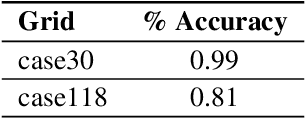
Abstract:We explore machine learning methods for AC Optimal Powerflow (ACOPF) - the task of optimizing power generation in a transmission network according while respecting physical and engineering constraints. We present two formulations of ACOPF as a machine learning problem: 1) an end-to-end prediction task where we directly predict the optimal generator settings, and 2) a constraint prediction task where we predict the set of active constraints in the optimal solution. We validate these approaches on two benchmark grids.
Probabilistic Segmentation via Total Variation Regularization
Nov 16, 2015

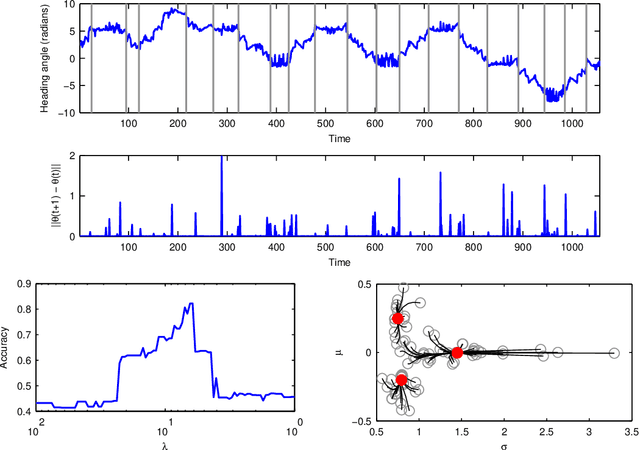
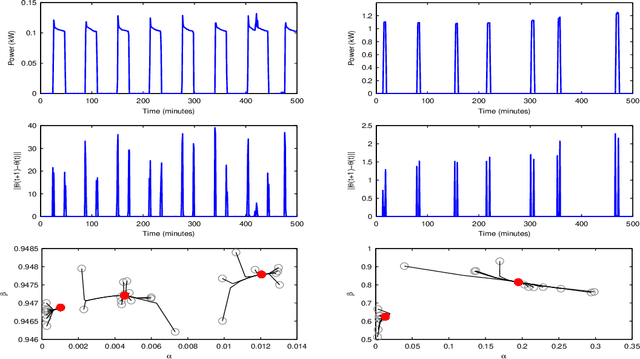
Abstract:We present a convex approach to probabilistic segmentation and modeling of time series data. Our approach builds upon recent advances in multivariate total variation regularization, and seeks to learn a separate set of parameters for the distribution over the observations at each time point, but with an additional penalty that encourages the parameters to remain constant over time. We propose efficient optimization methods for solving the resulting (large) optimization problems, and a two-stage procedure for estimating recurring clusters under such models, based upon kernel density estimation. Finally, we show on a number of real-world segmentation tasks, the resulting methods often perform as well or better than existing latent variable models, while being substantially easier to train.
Contextually Supervised Source Separation with Application to Energy Disaggregation
Dec 18, 2013

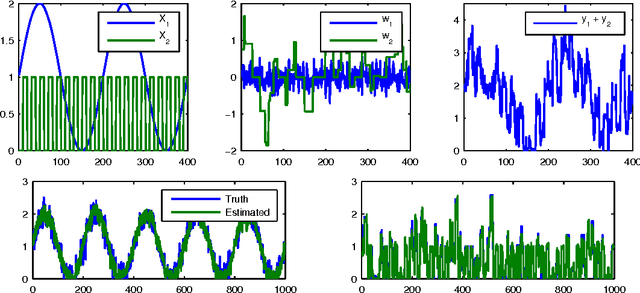
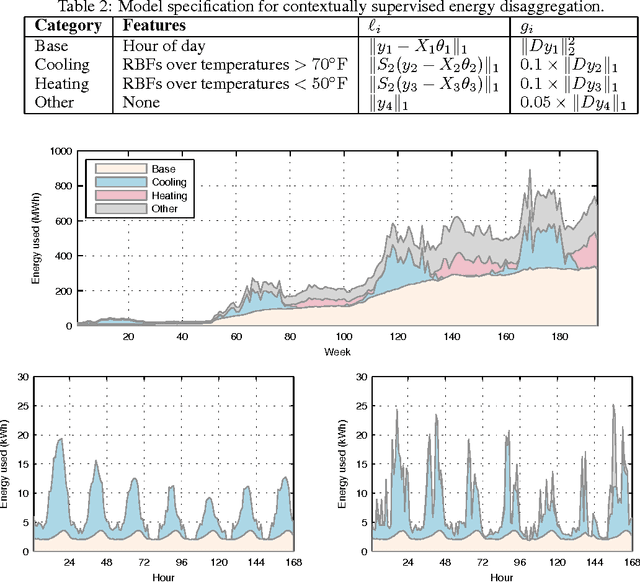
Abstract:We propose a new framework for single-channel source separation that lies between the fully supervised and unsupervised setting. Instead of supervision, we provide input features for each source signal and use convex methods to estimate the correlations between these features and the unobserved signal decomposition. We analyze the case of $\ell_2$ loss theoretically and show that recovery of the signal components depends only on cross-correlation between features for different signals, not on correlations between features for the same signal. Contextually supervised source separation is a natural fit for domains with large amounts of data but no explicit supervision; our motivating application is energy disaggregation of hourly smart meter data (the separation of whole-home power signals into different energy uses). Here we apply contextual supervision to disaggregate the energy usage of thousands homes over four years, a significantly larger scale than previously published efforts, and demonstrate on synthetic data that our method outperforms the unsupervised approach.
 Add to Chrome
Add to Chrome Add to Firefox
Add to Firefox Add to Edge
Add to Edge